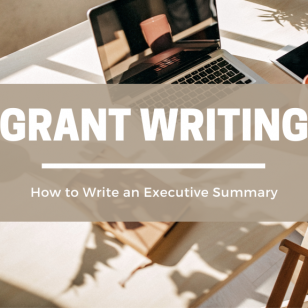By Kelsey Boudin,
President and Founder, Southern Tier Communications Strategies, LLC
My first inclination in grant writing was to put off the financial ask. That may just be human nature, at least for any halfway decent person, which I’m sure you are since you’re working at a nonprofit.
Dig deep into your memory vault. Perhaps when you were a kid, you approached your parents with an important proposal: an advance in your allowance. The first few times you tried it, you likely danced around the ask and tried to first convince your parents of the worthiness of your need for an unspecified amount of money. Your childish needs were probably quite trivial, involving becoming excluded from the social hierarchy:
“Mom, I really, really need this new pair of jeans. I’ll be such a loser if I don’t get them.”
“Dad, I’ll be the only kid in school not playing Red Dead Redemption II.”
Only later, if at all, would you drop the actual cost of the item you so desperately needed — that the designer jeans cost over $200 or the video game about $40.
In time, you learned to save yourself from the heartbreaking “money doesn’t grow on trees” conversation — and your parents a heart attack over breaking the bank for something silly and superfluous. Your asks became more succinct, to the point, getting the dollars and cents out first before explaining what for.
“Mom, I need $200,” you’d say.
“What could you possibly need that much money for?” she’d retort.
Hat in hand, tear in your eye and already reaching for a broom to do all of the next month’s chores, you’d then pull the heartstrings: “Rebecca got this great pair of jeans. Then Trisha went out and bought them. Everyone has them, Mom. EVERYONE! I’ll be such an outcast and then I won’t get asked to prom and my life will be over!”
Did it work? Maybe. Maybe not. But you made a compelling argument and were bold in your proposal. If nothing else, when told no, you set the stage for a future plea to the wallet under the premise that Mom and Dad couldn’t always say no.
Grant writing can be easier than asking your parents for money. Out with the ask!
Many beginning grant writers would similarly avoid the ask, opting instead to pump up the merits of the proposed initiative.
“The Feed our Children program will provide free breakfasts, lunches and dinners to the impoverished children of Olean, NY,” followed by paragraph after paragraph, page after page, of narrative before finally getting to the most important point: the financial reality. Of course, all of that accessory information — the needs statement, organizational background and proven successes, proposal workplan and timeline, sustainability plan, etc. — are absolutely vital to a competitive grant proposal.
But funders exist for a reason. And that reason is dead apparent in their title. They fund worthy projects and organizations. The most effective way to approach them is to ask for exactly what you need:
“The Feed our Children program invites your foundation to make a grant of $10,000 and become a valued partner in feeding the impoverished children of Olean, NY.”
The ask, intentions and benefits are apparent from the start. Then you can feel free to discuss how that funding will change the lives of people in need.
There’s only so much nonprofit money to go around. Let grant makers know what you need.
If you’ve ever received a rejection letter, you know they all take the same apologetic tone:
“We regret to inform you our foundation was unable to fund your project. We received numerous proposals for wonderful community-service projects, but due to limited funding available, we were permitted only to support a select few.”
They’re not just paying lip service to you or your organization. They sincerely regret not being able to support your project. They’re right. Grant seeking is a highly competitive process. Some grant makers receive hundreds or even thousands of proposals. In the end, the RFP may see only one project funded per state, per region or even just one throughout the entire nation. The grant proposals that are passed over are often the ones who fail to explicitly state financial needs and intentions.
Funders may be like your parents on a limited budget when you were a kid. But rest assured, most of them would bend over backward to support a strong proposal. Make their job easier. Proposals that win are, more often than not, the ones that express needs and intentions the most clearly and succinctly.
If you need some help, don’t hesitate to reach out to a grant writer with experience.







